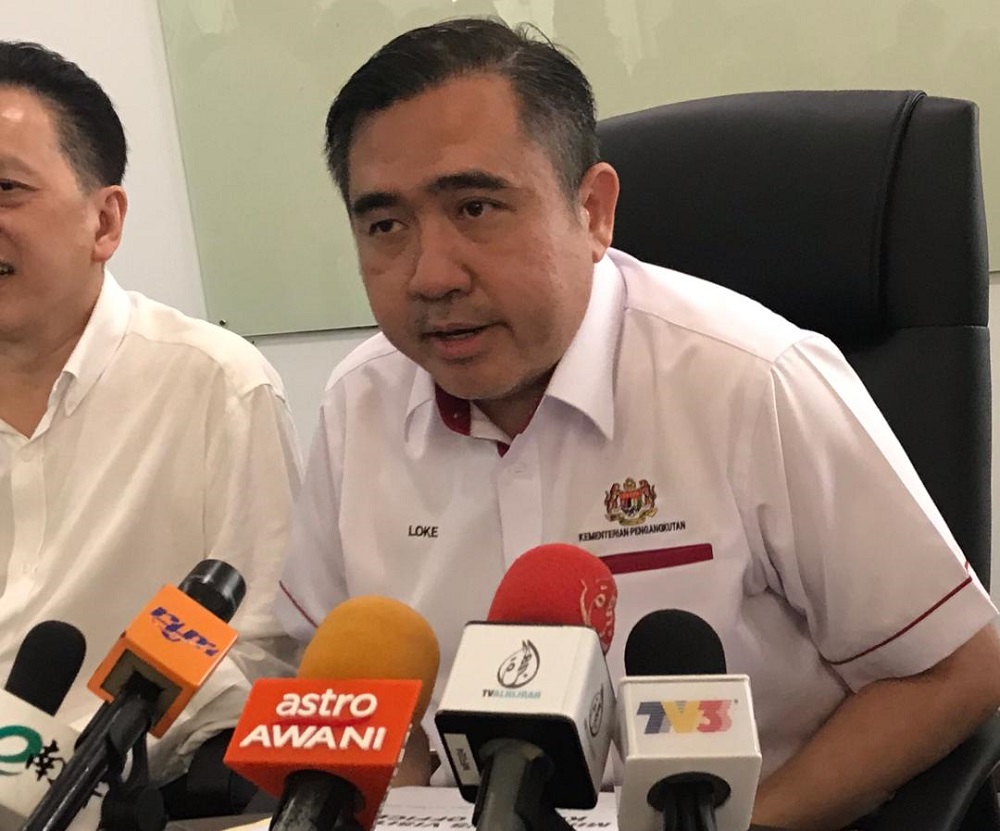JOHOR BARU, April 18 — The construction of the Gemas-Johor Baru electrified double-tracking project (EDTP), which is expected to be completed by October 2021, is slightly ahead of schedule, said Transport Minister Anthony Loke.
He said the RM8.9 billion project was now 37 per cent completed and would be done before the Electric Train Service (ETS) commence operations in early 2022.
“At present, the project is slightly ahead of its schedule. The cost will include all infrastructure and support facilities along the 192km track,” said Loke during his visit to the Keretapi Tanah Melayu Berhad (KTMB) project site in Kempas here today.
He earlier attended a closed-door briefing on the project’s progress with stakeholders, including state assemblymen and federal lawmakers whose respective areas are covered by the project.
However, Loke also pointed out that the project in Johor faced several barriers that is currently being resolved.
The Seremban DAP MP said the project owners have identified a total of 324 barriers along the project’s route and from that total 191 of them have been resolved.
“These barriers to the project include houses, buildings and places of worship that need to be removed or demolished to make way for the project’s progress,” said Loke, adding that to date there are only 131 barriers remaining.
He added that the government has taken various approaches to finding the best solution in solving the issue, including giving out one-off compensation to the parties involved.
The Gemas-Johor Baru EDTP will be part of the wider west coast electrified track system (ETS) in four years’ time.
The project, which was delayed due to land acquisition issues along the route, is now underway.
Under the EDTP, Johor will connect to the entire west coast, which is from Johor Baru to Padang Besar in Perlis.
It will see the EDTP going through 11 stations in Johor including Segamat, Kluang, Labis, Bekok, Paloh, Renggam, Kayang, Mengkibol, Kulai and Kempas Baru when completed.
Upon completion, the journey from KL Sentral to JB Sentral will see the trains travel at a speed of 140km to 160km per hour and the journey is estimated to take three hours and 30 minutes.



















